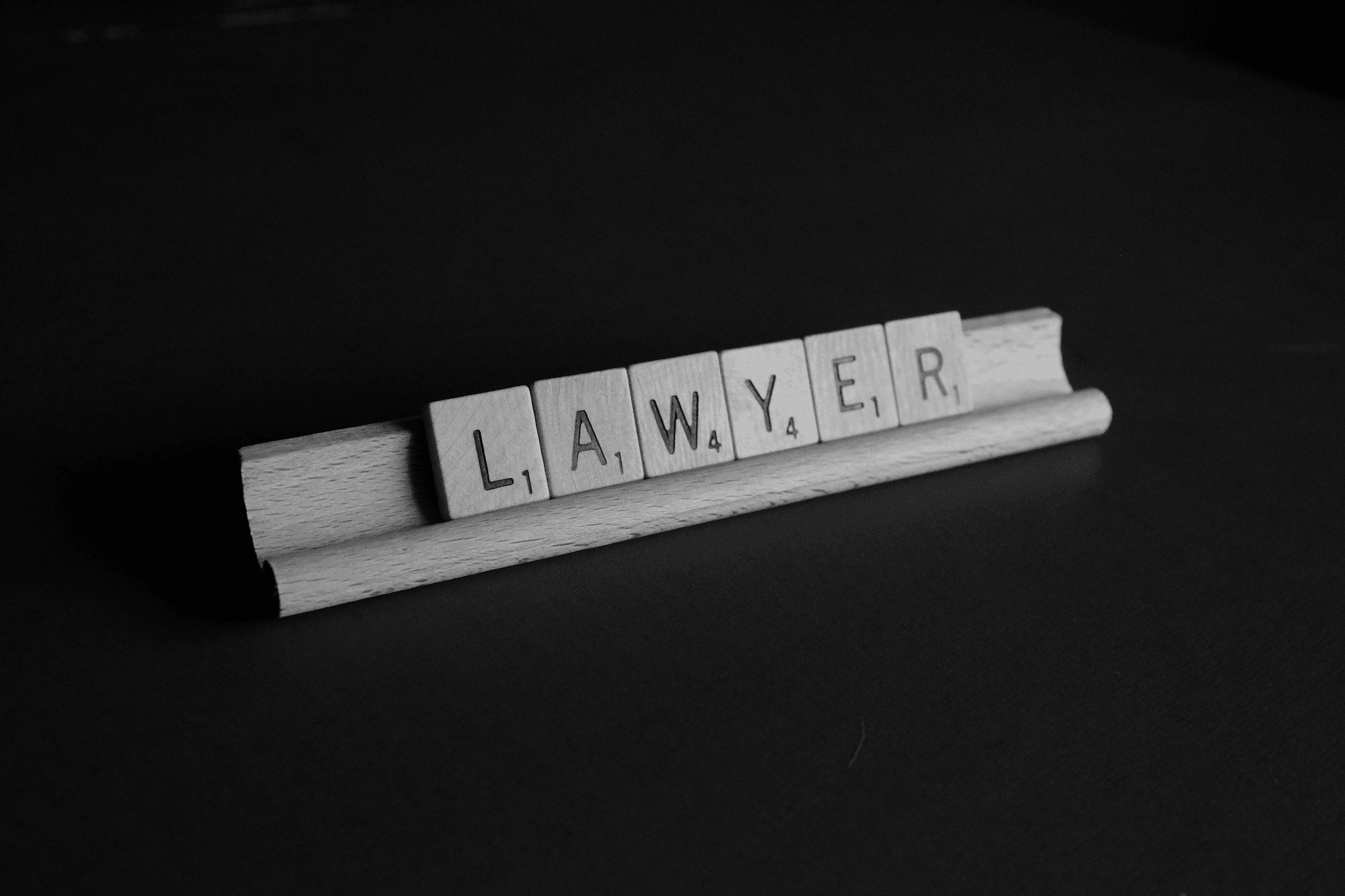Introduction

Navigating the complexities of being sued in Chinese court can feel like stepping into a labyrinth without a map. The Chinese legal system, while structured, presents unique challenges that can leave even seasoned individuals scratching their heads. Understanding these nuances is crucial for anyone facing legal action in China, as it directly influences the outcome of your case.
Understanding the Chinese Legal System
The Chinese legal system operates on a civil law framework, which differs significantly from common law systems familiar to many in the West. This means that laws are codified and judges play a more investigative role rather than merely acting as arbiters between opposing parties. Familiarizing yourself with this system is essential when you find yourself in the predicament of being sued in Chinese court, as it will shape your approach and expectations throughout the legal proceedings.
Potential Consequences of Being Sued
The repercussions of being sued in China can be far-reaching and may impact both personal and business interests. From financial liabilities to reputational damage, understanding these potential consequences is vital for anyone embroiled in a lawsuit. The stakes are high; hence, knowing what lies ahead can help you strategize effectively and mitigate risks associated with being sued in Chinese court.
Initial Steps When Facing a Lawsuit
When confronted with the reality of being sued, taking immediate action is paramount to safeguard your rights and interests. Your first step should involve seeking professional legal advice to understand your position clearly and outline potential defenses against the claims made against you. Additionally, gathering relevant documents and evidence early on will bolster your case as you prepare to navigate through the intricacies of being sued in Chinese court.
Overview of Chinese Courts

Navigating the labyrinth of the Chinese legal system can be daunting, especially when you find yourself in the unfortunate position of being sued in Chinese court. Understanding how the court system operates is crucial for anyone facing legal action, as it can significantly influence your strategy and outcome. This section will break down the structure of the court system, types of cases handled, and essential jurisdictional details to help you prepare.
Structure of the Court System
The Chinese court system is organized into a tiered structure comprising various levels that reflect both geographic and functional hierarchies. At the top are the Supreme People's Court, followed by High People's Courts at provincial levels, Intermediate People's Courts in cities, and Basic People's Courts at local levels. Each tier has its own jurisdictional powers, which means that being sued in Chinese court may involve different courts based on where you live or where a contract was signed.
This hierarchy ensures that cases are handled appropriately based on their complexity and significance. For example, serious criminal offenses typically go to higher courts, while minor civil disputes might be resolved at basic courts. Understanding this structure is vital for determining where your case will be heard and who will preside over it.
Types of Cases Handled
Chinese courts deal with a wide array of cases that range from civil disputes to criminal matters. When you find yourself being sued in Chinese court, it's likely related to civil issues such as contract disputes, property claims, or torts like personal injury claims. However, don't overlook that criminal cases—ranging from theft to more severe offenses—are also prevalent within this judicial framework.
Additionally, administrative lawsuits against government actions are another important aspect of China's legal landscape. Each type requires different handling procedures and may involve specific laws or regulations unique to China’s legal culture. Knowing what type of case you're facing can help tailor your approach effectively.
Jurisdiction and Venue
Jurisdiction refers to a court's authority to hear a case based on various factors like location or subject matter; venue determines where that case should be tried geographically. In China, jurisdiction is primarily determined by either territorial principles or subject matter considerations—meaning that being sued in Chinese court often depends on where both parties reside or where the event leading to litigation occurred.
When assessing venue options for your case, consider factors such as convenience for witnesses and access to evidence; these elements can significantly affect trial outcomes. Furthermore, if you're involved in international disputes or cross-border transactions while doing business in China, understanding jurisdictional nuances becomes even more critical for an effective defense strategy.
To sum up this overview: understanding how Chinese courts operate provides essential context when facing litigation challenges; after all, knowledge is power when dealing with potential consequences stemming from being sued in Chinese court!
Legal Representation in China

Navigating the complexities of the Chinese legal system can be daunting, especially when faced with the prospect of being sued in Chinese court. Engaging a local attorney is not just advisable; it’s essential for anyone looking to effectively manage their legal challenges. A knowledgeable lawyer can guide you through the intricacies of local laws, ensuring your rights are protected and that you have a fighting chance.
Importance of Hiring a Local Attorney
When dealing with lawsuits, particularly in a foreign legal landscape like China, hiring a local attorney is crucial. They possess an intimate understanding of the nuances and idiosyncrasies of the Chinese legal system that an outsider simply cannot match. Without this expertise, you risk making critical errors that could jeopardize your case or even lead to unfavorable judgments against you.
Moreover, local attorneys are well-versed in regional practices and procedural norms that vary from province to province within China. This knowledge can significantly impact your strategy and outcomes when being sued in Chinese court. Whether it's navigating paperwork or understanding courtroom etiquette, having someone who knows the ropes is invaluable.
Acquiring the Right Expertise
Not all attorneys are created equal; thus, acquiring the right expertise is paramount when facing legal troubles in China. You should seek out lawyers with specific experience relevant to your case type—be it commercial disputes, intellectual property issues, or personal injury claims. The right attorney will not only understand general law but also have specialized knowledge pertinent to your situation.
In addition to specialization, consider an attorney’s track record and reputation within their field. When being sued in Chinese court, having someone with proven success rates can provide peace of mind and increase your chances for a favorable outcome. Don’t hesitate to ask for references or case studies during your initial consultations; this will help ensure you're making an informed choice.
Role of AC&E in Your Defense
AC&E plays a pivotal role when you're grappling with legal challenges such as being sued in Chinese court. Their team comprises seasoned professionals who bring both expertise and cultural insight into every case they handle. By leveraging their resources, clients gain access to comprehensive strategies tailored specifically for navigating China's unique legal environment.
Furthermore, AC&E offers support beyond mere representation; they assist clients in preparing documentation and gathering evidence necessary for building a solid defense strategy. This proactive approach ensures that you’re not just reacting but are strategically prepared at every stage of litigation or negotiation processes. With AC&E by your side, you can focus on what matters most while they work diligently on your behalf.
Preparing Your Case

When you find yourself in the challenging situation of being sued in Chinese court, preparation is key. The legal landscape can be quite different from what you might expect, so understanding how to navigate it effectively is crucial. This section will guide you through gathering necessary documents, understanding local laws and regulations, and creating a solid legal strategy.
Gathering Necessary Documents
The first step in preparing your case is to gather all relevant documents that pertain to the lawsuit. This includes contracts, emails, correspondence, and any other materials that could support your position. Being sued in Chinese court means that the more organized and thorough your documentation is, the better equipped you'll be to present your side of the story.
In addition to collecting evidence for your defense, ensure that you have any paperwork related to previous agreements or communications with the opposing party. This not only strengthens your case but also helps clarify any misunderstandings that may have led to litigation. Remember, every piece of documentation counts when you're trying to make a strong impression on the court.
Understanding Local Laws and Regulations
Understanding local laws and regulations is paramount when facing a lawsuit in China; after all, ignorance of the law isn't an excuse! Familiarizing yourself with relevant statutes will help you grasp how they apply to your specific situation. Being sued in Chinese court often involves unique procedural rules that differ significantly from those in other jurisdictions.
Consulting with a knowledgeable attorney who specializes in Chinese law can provide invaluable insights into these regulations. They can help demystify complex legal jargon and ensure you're fully aware of how local laws impact your case strategy. By staying informed about these nuances, you'll be better prepared for what lies ahead.
Creating a Legal Strategy
Once you've gathered documents and understood local laws, it's time to create a comprehensive legal strategy tailored specifically for being sued in Chinese court. Start by identifying key arguments that support your position while anticipating counterarguments from the opposing party. A well-thought-out strategy not only enhances your chances of success but also instills confidence as you navigate this daunting process.
Collaboration with an experienced attorney will further refine this strategy by incorporating their expertise into decision-making processes regarding settlement offers or trial preparations. Additionally, consider potential outcomes—both favorable and unfavorable—and plan accordingly for each scenario so you're never caught off guard during proceedings.
Ultimately, having a robust legal strategy can make all the difference when facing litigation; it’s like having a roadmap through uncharted territory!
The Litigation Process

Navigating the litigation process can feel like walking through a maze, especially when you're facing the daunting experience of being sued in Chinese court. Understanding the key stages, timeline expectations, and common pitfalls can help you steer your way through this complex legal landscape. With a little preparation and insight, you can make informed decisions that may significantly impact your case.
Key Stages of a Lawsuit
When it comes to being sued in Chinese court, there are several key stages that you'll need to be familiar with. First up is the filing of the complaint by the plaintiff, which outlines their allegations against you. Once you've been served with this complaint, you'll have a specific timeframe to respond—typically within 15 days—where you’ll submit your defense and any counterclaims if necessary.
After both parties have laid out their arguments, the court will conduct preliminary hearings to determine if there’s enough merit for the case to proceed. If so, expect formal evidence collection and possibly witness testimonies as part of the discovery phase. Finally, after all arguments have been presented, the judge will issue a verdict—a moment that can feel like an eternity in coming.
Timeline Expectations
Understanding timeline expectations is crucial when you're dealing with being sued in Chinese court. Generally speaking, a lawsuit can take anywhere from several months to even years before reaching resolution—depending on various factors such as case complexity and court backlog. For instance, simpler cases may wrap up within six months while more intricate disputes could stretch beyond two years.
Keep in mind that each stage has its own deadlines; for example, after receiving notice of a lawsuit, you're typically given 15 days to respond formally. Furthermore, delays may occur due to procedural issues or additional evidence requests from either party—so it's wise to remain patient yet proactive throughout this process.
Common Pitfalls to Avoid
When facing litigation in China, avoiding common pitfalls is essential for protecting your interests during this challenging time of being sued in Chinese court. One major mistake is failing to respond promptly; missing deadlines can lead not only to unfavorable judgments but also potentially default rulings against you. Always stay organized and aware of timelines!
Another pitfall involves neglecting local legal nuances; what works elsewhere may not apply here! Engaging with an experienced local attorney who understands these intricacies is vital for navigating potential landmines along your path toward resolution. Lastly—and perhaps most importantly—don’t underestimate the power of documentation; maintaining thorough records will bolster your defense and provide clarity throughout proceedings.
Settlements vs. Going to Trial

When facing the daunting prospect of being sued in Chinese court, one of the most critical decisions you'll need to make is whether to settle or proceed to trial. This choice can significantly affect the outcome of your case, your finances, and even your reputation. Understanding the nuances of each option will empower you to make an informed decision that aligns with your best interests.
Evaluating Settlement Offers
Evaluating settlement offers is a crucial step when you're being sued in Chinese court. A settlement can provide a quicker resolution and potentially save you from the uncertainties associated with a trial, including lengthy proceedings and unpredictable outcomes. However, it’s essential to assess whether the offer adequately compensates for your losses and whether it aligns with your long-term goals.
Negotiating a settlement requires careful consideration of various factors, including the strength of your case, the potential costs involved in litigation, and how much time you are willing to invest in fighting back. Sometimes accepting an offer that seems less than ideal may be more beneficial than dragging out a lawsuit that could result in greater losses down the line. Always ensure you have legal counsel to help weigh these options effectively.
Pros and Cons of Trials
Going to trial when being sued in Chinese court comes with its own set of advantages and disadvantages that must be carefully considered before proceeding. On one hand, trials can provide an opportunity for vindication if you believe strongly in your position; winning could not only clear your name but also set a precedent for future cases. Additionally, trials may lead to larger compensatory awards if you are successful.
On the flip side, trials can be time-consuming and expensive endeavors filled with uncertainty—there's no guarantee you'll win even if you feel confident about your case. The public nature of trials may also pose reputational risks that could impact personal or business relationships moving forward. Weighing these pros and cons against potential settlements will give you clarity on which path may suit you better.
How AC&E Can Assist
Navigating the complexities surrounding being sued in Chinese court can be overwhelming; that's where AC&E steps in as a valuable ally during this challenging time. Our team specializes in providing comprehensive legal support tailored specifically for individuals facing lawsuits within China’s unique legal landscape—offering insights into local customs and practices that can make all the difference when evaluating settlements or preparing for trial.
AC&E's expertise extends beyond mere representation; we work closely with clients to evaluate settlement offers critically while also preparing robust defense strategies should litigation become necessary. With our guidance, you'll have access to resources that enhance your understanding of both options so you can confidently choose what’s best for your situation.
Conclusion
Navigating the complexities of a lawsuit can be daunting, especially when it involves being sued in Chinese court. Understanding the nuances of the Chinese legal system is crucial for anyone facing such challenges. With the right preparation and support, you can better navigate this intricate landscape and protect your interests.
Navigating Cultural Differences
Cultural differences can significantly impact how legal proceedings unfold in China. When dealing with being sued in Chinese court, it’s essential to appreciate local customs and practices that may not align with your own expectations. Engaging a local attorney can help bridge these cultural gaps, ensuring that you approach your case with sensitivity and awareness.
Importance of Compliance and Documentation
Compliance with Chinese laws is non-negotiable when you're facing a lawsuit; any misstep could jeopardize your position. Being sued in Chinese court demands meticulous attention to documentation, as proper records can make or break your defense strategy. Keeping organized files will not only help you stay on track but also demonstrate your commitment to adhering to local regulations.
Final Thoughts on Being Sued in Chinese Court
In conclusion, being sued in Chinese court requires a proactive approach and a solid understanding of both legal procedures and cultural nuances. With careful planning, effective legal representation, and an emphasis on compliance, you can navigate this challenging situation more effectively. Remember that every challenge presents an opportunity for growth; handling such disputes skillfully could lead to valuable insights into both the legal landscape and cultural dynamics at play.
